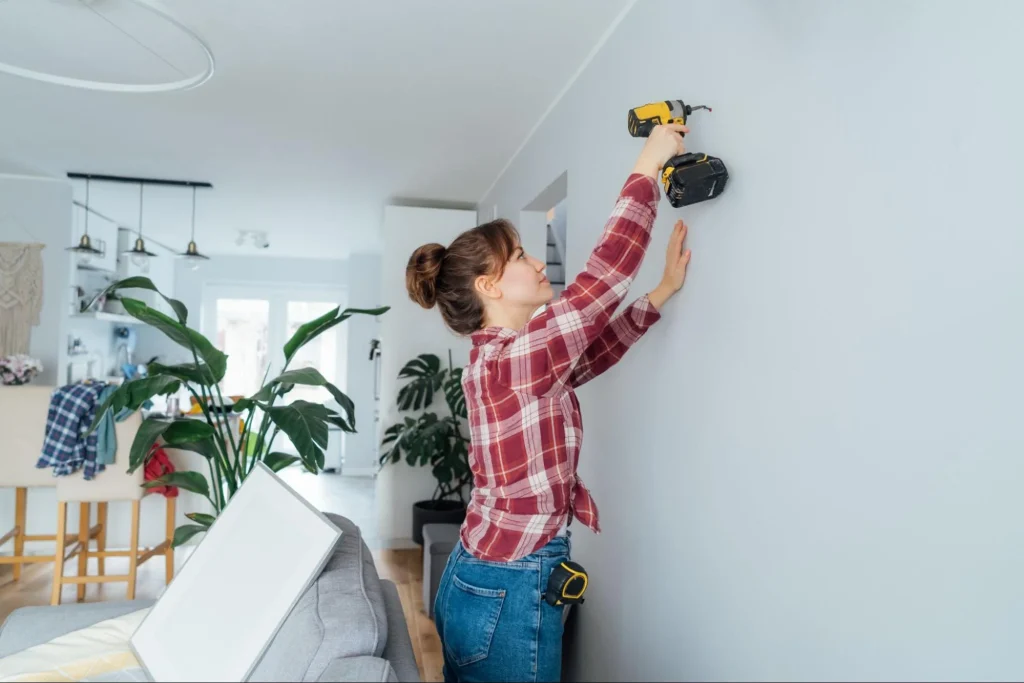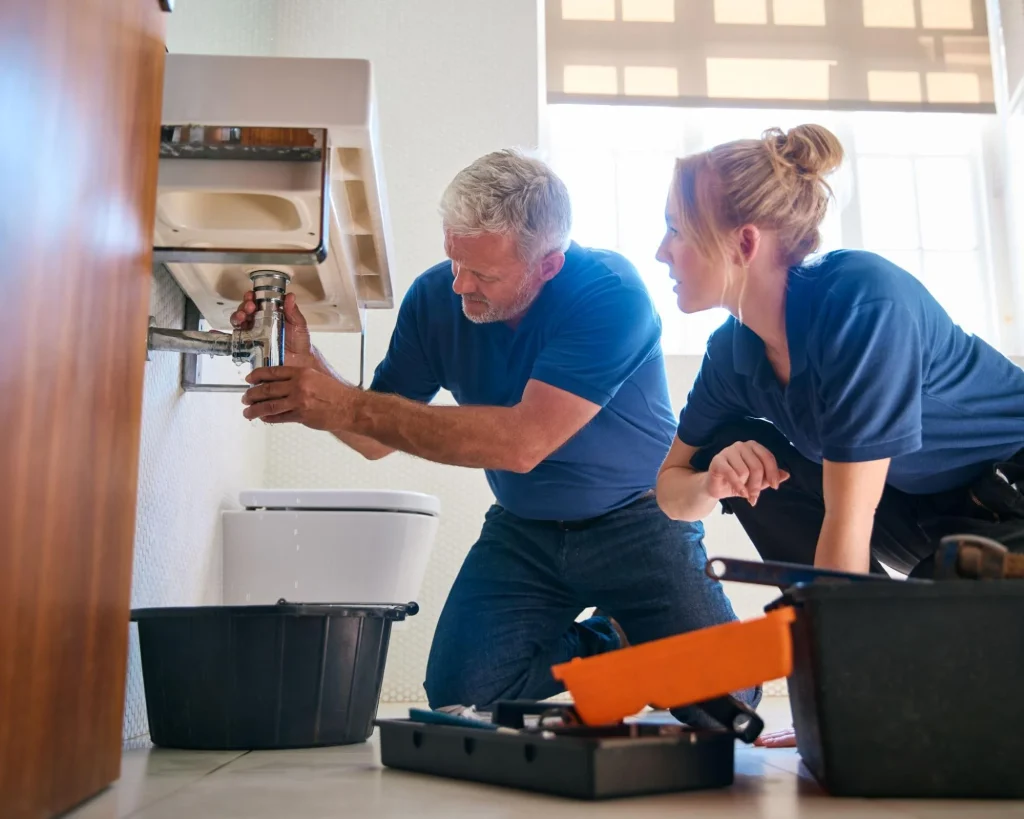
Timely repairs in your home are crucial for maintaining its value and safety. Addressing issues promptly can save you from costly damages later on. Whether it’s a small crack in the wall or a more significant problem like a leaky roof, ignoring these repairs can lead to more extensive issues that are harder to fix.
As a homeowner, you face several common repair tasks that, if left unattended, can escalate into significant challenges. Understanding what needs attention and how to handle these repairs will not only keep your home in good shape but also enhance your living experience. A reliable handyman can be an invaluable resource, helping you identify and prioritize these tasks efficiently.
Being proactive about repairs can also prevent accidents and health hazards. Regular inspections and maintenance create a safer environment and contribute to a positive home atmosphere. Establishing a good relationship with a handyman can provide you with peace of mind, knowing that you have a trusted expert to rely on for your home’s needs.
Timely repairs play a crucial role in maintaining your home’s value and safety. Addressing issues as they arise can save you money and prevent larger problems from developing. Let’s look at the specific benefits of regular maintenance and early intervention.
Regular maintenance offers significant cost savings. Simple tasks, like fixing leaks or patching cracks, often take less time and money compared to larger repairs later on. For example, a small plumbing issue can lead to water damage if ignored, resulting in much higher repair costs.
Consider tracking your maintenance expenses. Create a list of tasks completed each year. This will help you see patterns in spending and identify potential savings. When you invest in timely repairs, you protect your home from deteriorating conditions that can escalate quickly.
When you intervene early, you greatly reduce the risk of extensive damage. Ignoring problems can lead to issues like mold, structural failure, or electrical hazards. These conditions can pose health risks and may require costly fixes.
For instance, a small crack in your foundation can expand over time. Repairing it early could cost a few hundred dollars, whereas delaying it might result in thousands in repairs.
To make the most of early intervention, regularly inspect your home and address concerns immediately. Set a schedule for evaluations, especially before harsh weather changes. This proactive approach will safeguard your home, your finances, and your peace of mind.

Regular maintenance is key to keeping your home or workspace in good condition. Being aware of common repairs can help you address issues before they escalate. Here are three main areas to focus on: plumbing, electrical systems, and structural stability.
Plumbing problems can disrupt your daily routine. Common issues include leaky faucets, running toilets, and clogged drains.
Addressing these plumbing issues promptly can prevent more serious water damage.
Electrical maintenance is crucial for safety and efficiency. Common electrical problems include faulty outlets, flickering lights, and tripped breakers.
Taking care of these electrical issues boosts safety and can reduce energy costs.
Maintaining structural integrity is vital for any building. Common structural repairs involve drywall, foundation, and roofing problems.
Paying attention to these structural aspects can enhance the durability of your home or workspace.

When taking on repair tasks, safety should always be your priority. Proper preparation and the use of protective measures can help you avoid injuries and ensure a successful outcome.
Using personal protective equipment (PPE) is essential for any repair job. Start with gloves to protect your hands from sharp edges, chemicals, and other hazards. Safety glasses are important for eye protection when cutting, drilling, or working with harmful materials.
Wear work boots with sturdy soles to prevent injuries from heavy objects. Depending on the task, consider using a hard hat if you are working in an area where objects could fall.
Also, include a dust mask when dealing with wood or other materials that produce dust. Be sure to always inspect your PPE for damage before use to guarantee it is effective in keeping you safe.
Electrical tasks require special attention. Always turn off the power at the circuit breaker before starting any repair work. Use a voltage tester to check that the power is off in the area where you are working.
Wear insulated gloves and use tools with rubber handles to minimize your risk of electric shock. Keep tools and cords dry to avoid accidents.
Be cautious of overloaded circuits, which can cause fires. Use the correct wattage for bulbs and avoid using damaged extension cords. If you’re not confident in your skills, it’s best to hire a professional to ensure safety during electrical repairs.

Knowing when to tackle repairs yourself and when to call in a professional can save you time and money. It’s important to assess the complexity of the job and understand the specific situations that warrant expert assistance.
When you face a repair issue, start by evaluating how complex it is. Ask yourself the following questions:
A good rule of thumb is to opt for professional help when the repair could result in injury, or significant damage or requires specialized knowledge.
Certain repairs should always be left to the professionals. These include:
When in doubt, it’s better to consult a professional. This not only ensures safety but also guarantees that the repair meets local codes and standards.

Creating a strong bond with a handyman can lead to better service and trust. When you understand the qualities to look for and emphasize clear communication, your relationship will flourish.
When searching for a handyman, certain traits are essential. First, ensure they have experience and skills relevant to the work you need. Review their portfolio or ask for references to see past projects.
Next, look for reliability. A good handyman shows up on time and completes tasks as promised. This reliability builds your confidence in their ability to handle your repairs.
Trustworthiness is another key quality. You want someone who respects your home and belongings. Ask for background checks or read reviews to gauge their character.
Finally, effective problem-solving skills are crucial. A handyman should be able to assess issues and propose viable solutions. This will save you time and money in the long run.
Clear communication is vital in any handyman-client relationship. Start by discussing your expectations upfront. Describe the tasks you need help with and what you’re hoping to achieve.
Use specific language when explaining your needs. Avoid vague descriptions, as they can lead to misunderstandings. For instance, instead of saying, “I need this fixed,” specify what “this” is and the desired outcome.
Establish a timeline as well. If you have a deadline, share it. This ensures your handyman understands the urgency and can plan accordingly.
Timely repairs are essential for maintaining your home’s safety and value. When issues are addressed quickly, you can prevent them from becoming bigger and costlier.
Pay attention to small problems, like leaks or cracks. These might seem minor, but they can lead to significant damage over time.
Make a checklist of repairs needed around your home. Prioritize these tasks to stay organized and ensure everything is noticed. By addressing repairs promptly, you protect your investment and enhance the comfort of your living space. Your home deserves care, and you are capable of providing it.
Addressing repairs quickly helps prevent further damage. For instance, a small leak can lead to mold growth if not fixed promptly. Quick action can save you from more extensive repairs down the line.
Regular property maintenance keeps your home in good shape and helps retain its value. It also reduces the likelihood of unexpected repair costs. This way, you can manage your budget better and plan for improvements.
When prioritizing repairs, consider factors like safety, impact on daily living, and cost. Addressing safety issues first is crucial, as they can pose immediate risks. Additionally, evaluate how repairs might affect your daily routine.
A skilled handyman can provide regular check-ups and maintenance for your installations. This includes adjusting fittings, sealing gaps, and ensuring everything functions properly. Regular attention can significantly extend the life of appliances and systems.
Delaying minor repairs can lead to larger, more costly issues. For example, ignoring a small crack in the wall may result in structural damage. This can also disrupt your daily activities or business operations if left unaddressed.